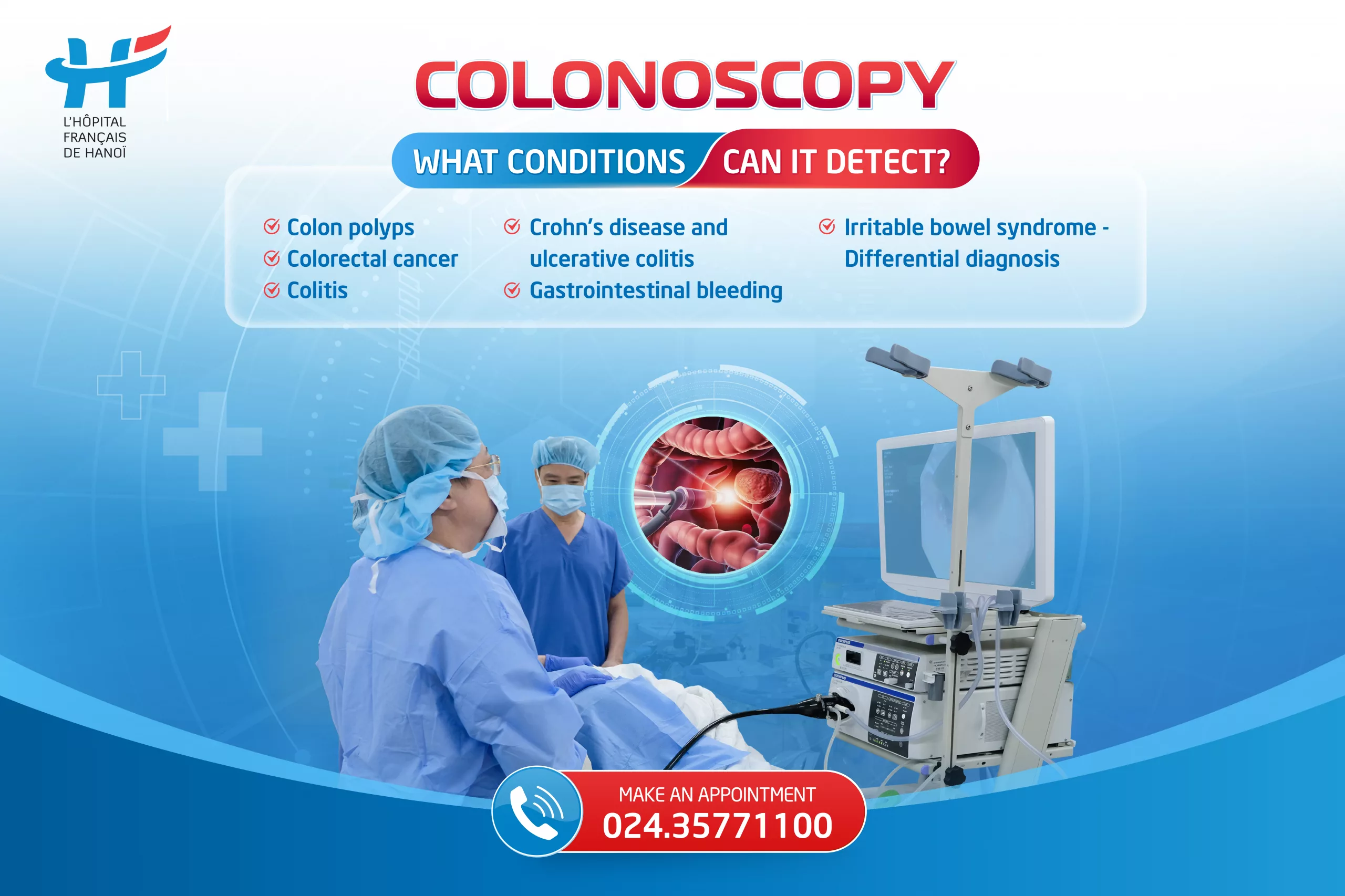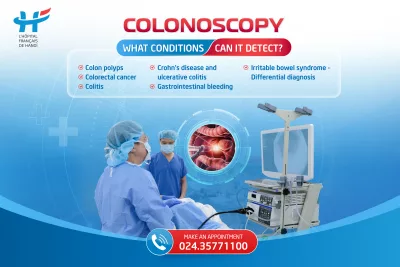According to Dr. Nguyen Quang Duat, Department of Gastroenterology & Hepatology, Hanoi French Hospital (HFH), the following are common conditions that can be detected through colonoscopy:
- Colon polyps: Colon polyps are small growths that develop on the inner lining of the colon. While most are benign, some types can become cancerous if not detected and removed early. Colonoscopy not only detects these polyps but also allows for their removal during the same procedure.
- Colorectal cancer: Colonoscopy is the most effective method for early detection of colorectal cancer. By allowing direct visualization of the entire colon lining, doctors can identify precancerous lesions or early-stage cancers, significantly improving treatment success rates.
- Colitis (colon inflammation): Colitis can result from infections, autoimmune conditions, or other causes. Colonoscopy helps assess the extent and severity of inflammation, guiding accurate treatment planning.
- Crohn’s disease and ulcerative colitis: These are chronic inflammatory bowel diseases (IBD) that can cause severe damage to the colon lining. Colonoscopy is used to determine the affected areas, evaluate inflammation severity, and monitor treatment response.
- Gastrointestinal bleeding: Colonoscopy can pinpoint the source and cause of lower GI bleeding – such as ulcers, inflammation, or tumors – allowing for timely intervention.
- Irritable bowel syndrome (IBS) – Differential diagnosis: While IBS does not cause visible damage to the colon, colonoscopy helps rule out other conditions with similar symptoms, such as colitis, polyps, or colorectal cancer.
Dr. Duat recommends regular colonoscopy screening for the following groups to detect colorectal cancer and other GI conditions early:
- Individuals aged 45 and older.
- Those with a family history of colorectal cancer – early screening (from age 40 or earlier) may be advised.
- People with abnormal symptoms such as rectal bleeding, persistent bowel habit changes (diarrhea or constipation), abdominal pain, unexplained anemia, or rapid weight loss.
Recommended screening intervals:
Average-risk individuals: every 5–10 years if no abnormalities are found.
Those with polyps or moderate risk factors: every 2–3 years, depending on polyp type and quantity.
Those with a personal or family history of colorectal cancer: every 1–2 years, based on disease severity and treatment progress.
——————-
Comprehensive and Safe Colonoscopy Services at Hanoi French Hospital (HFH)
HFH offers a full range of upper and lower GI endoscopy services with:
- An internationally trained team of Gastroenterology and Hepatology specialists.
- State-of-the-art equipment, including the Olympus EVIS EXERA III CV-190 HQ system, enabling high-definition magnified and NBI (Narrow Band Imaging) endoscopy, biopsy staining (PAS, HE), 1.5 Tesla MRI, and WHO-recommended laboratory testing.
- Sterile, meticulously disinfected endoscopy suites after each procedure.
- Pre-endoscopy consultation with anesthesiologists to ensure safety and comfort.
- Personalized care — doctors accompany patients throughout the process, perform multidisciplinary consultations when needed, and tailor the most effective treatment plan.
- Dedicated recovery areas, providing comfort and complete safety before, during, and after the procedure.
- Treatment protocols aligned with WHO, international gastroenterology associations, and the Vietnam Endoscopy Society.
For more information or to schedule an appointment with our specialists, please contact us via HOTLINE 024.35771100, message our Fanpage “Hanoi French Hospital,” or connect with us on Zalo OA at zalo.me/2008009049335817955.


